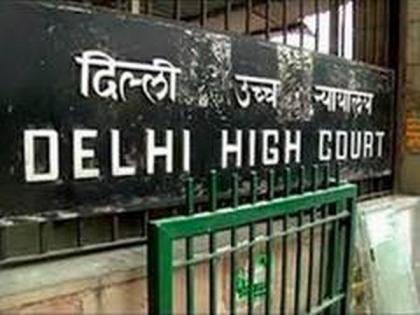Journalist moves Delhi HC challenging Twitter's decision to block her account
By ANI | Updated: January 6, 2022 18:20 IST2022-01-06T18:12:17+5:302022-01-06T18:20:07+5:30
A writ petition has been moved by journalist Aarti Tikoo, founder and editor of 'The New Indian' in the Delhi High Court challenging Twitter Inc's decision to lock her account for allegedly making a tweet violating the social media platform's rules.

Journalist moves Delhi HC challenging Twitter's decision to block her account
A writ petition has been moved by journalist Aarti Tikoo, founder and editor of 'The New Indian' in the Delhi High Court challenging Twitter Inc's decision to lock her account for allegedly making a tweet violating the social media platform's rules.
The petitioner journalist sought the court's direction, quashing the impugned decision of Twitter Inc dated 15.12.2021 whereby the petitioner has been locked out of her Twitter account apart from the deletion of her Tweet.
The plea stated that the decision taken by Twitter Inc to lock the petitioner out of her Twitter account on utterly spurious grounds was being violative of Articles 14, 19, and 21 of the Constitution of India.
She stated in the petition that her account was locked after she called out the actions of an alleged Kashmiri Islamist on the platform against her cousin.
According to the petition, on December 14, Tikoo's cousin Sahil Tikoo participated in a Twitter space discussion conducted under aegis and supervision of the microblogging site wherein he was called an Indian agent, and a lot of other allegations were made against him.
On December 15, Tikoo tweeted, "My brother @TikooSahil_ who lives in Srinagar, is being openly threatened by jihadi terrorists sitting in Kashmir-India, and their handlers in Pakistan, UK, and US. Is anyone watching? Are we sitting ducks waiting to be shot dead by Islamists or will you crackdown on them?", while tagging the Home Minister Office's handle on Twitter, said the plea.
As a consequence, she was served a notice by the Twitter Admin saying that her aforesaid Tweet had violated the Twitter Rules against Hateful Conduct. The notice further stated, "You may not promote violence against, threaten, or harass other people on the basis of race, ethnicity, national origin, sexual orientation, gender, gender identity, religious affiliation, age, disability, or serious disease", the plea read.
"The notice added that it has temporarily limited her account's feature including posting tweets and that she can use her account in full functionality only if she deletes the content that violates their rules," stated the petition.
The petitioner submitted that Respondent No.2 (Twitter Inc) performs a specific public function. Not only does it qualify as 'State' within the meaning of Article 12 of the Constitution of India, it also qualifies as an 'authority' falling within the ambit of Article 226 of the Constitution of India.
The plea further submitted that as per the new meaning of Article 14 enunciated in the celebrated Supreme Court case of E.P. Royappa Vs. State of Tamil Nadu, (1974) la] 172 SC, any arbitrariness being perpetrated by the State is subject to sanction under the said provision.
"Hence, it is clear that the arbitrary action of Respondent No.2 in suspending the account of the Petitioner for merely calling out radical Islamism is something that deserves to be censured and quashed," said the petition.
The plea further submitted, "The action has been taken without granting the petitioner the right to hearing - Audi alteram Partem, which is a defining component of Article 14 of the 34 Constitution of India as per the law declared by the Hon'ble Supreme Court of India."
The plea added that because the action of the Respondent No.2 has perhaps the intended effect of silencing the voice of the petitioner who is a Kashmiri Pandit at the behest of Islamists. This is in effect a violation of her right to life under Article 21 of the Constitution of India which forces her to relive the trauma that she experienced as a refugee in her own country.
The plea stated, "...the action of microblogging site also imposes an intolerable and illegal restriction on the right to freedom of speech and expression guaranteed to the petitioner under Article 19(1) (a) of the Constitution of India in a manner that is not sanctioned under Article 19 (2) of the same."
The plea also submitted that the action could lead to the loss of its intermediary status under Rule 7 of the Information Technology Rules, 2000 read with sections 79 sub-clauses 1 and 2 of the Information Technology (Intermediary Guidelines and Digital Media Ethics Code) Rules, 2021.
( With inputs from ANI )
Disclaimer: This post has been auto-published from an agency feed without any modifications to the text and has not been reviewed by an editor
Open in app